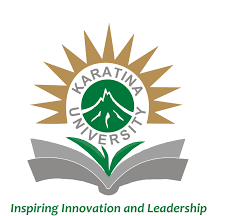GEO 310: CLIMATOLOGY
The purpose of the course is to enable the learner acquire knowledge of the past, present, and future climate conditions, acquire fundamental skills needed in assessing climate-related risks, informing policy decisions, and promoting sustainability and resilience in the face of climate change.
Earth's climate system: atmosphere; hydrosphere; biosphere; lithosphere and their interactions. Atmospheric thermodynamics: Laws of thermodynamics; stability and instability of the atmosphere. Hydrodynamics: Hydrostatic equations; laws of motion; divergence and convergence. Air masses and fronts: Precipitation and condensation processes. The sun and the atmosphere: the nature of radiation; laws of radiation and heat balances; general circulation of the tropical disturbances; monsoon climates.
Applied climatology: Agricultural climatology; drought; desertification; crop-water relationships. Urban climatology: Micro-climatology; urban heat islands and pollution; topo-climatology; Landscape and climate.
Regional climatology. Techniques in climatology: Statistical analysis of data; synoptic chart analysis; mean sea-level synoptic chart; anticyclones and ridges; Wind speed and direction; height of cloud base, precipitation and evaporation. water balance structures.
The purpose of the course is to enable the learner acquire knowledge of the past, present, and future climate conditions, acquire fundamental skills needed in assessing climate-related risks, informing policy decisions, and promoting sustainability and resilience in the face of climate change.
Earth's climate system: atmosphere; hydrosphere; biosphere; lithosphere and their interactions. Atmospheric thermodynamics: Laws of thermodynamics; stability and instability of the atmosphere. Hydrodynamics: Hydrostatic equations; laws of motion; divergence and convergence. Air masses and fronts: Precipitation and condensation processes. The sun and the atmosphere: the nature of radiation; laws of radiation and heat balances; general circulation of the tropical disturbances; monsoon climates.
Applied climatology: Agricultural climatology; drought; desertification; crop-water relationships. Urban climatology: Micro-climatology; urban heat islands and pollution; topo-climatology; Landscape and climate.
Regional climatology. Techniques in climatology: Statistical analysis of data; synoptic chart analysis; mean sea-level synoptic chart; anticyclones and ridges; Wind speed and direction; height of cloud base, precipitation and evaporation. water balance structures.
- Teacher: Martin Wandie Mbugua
